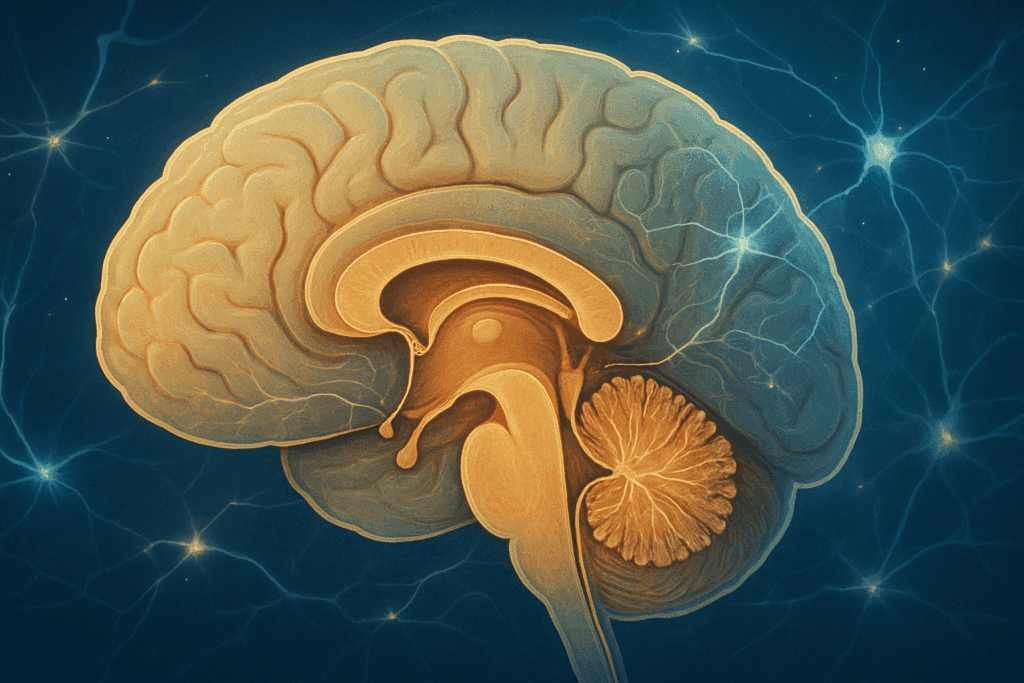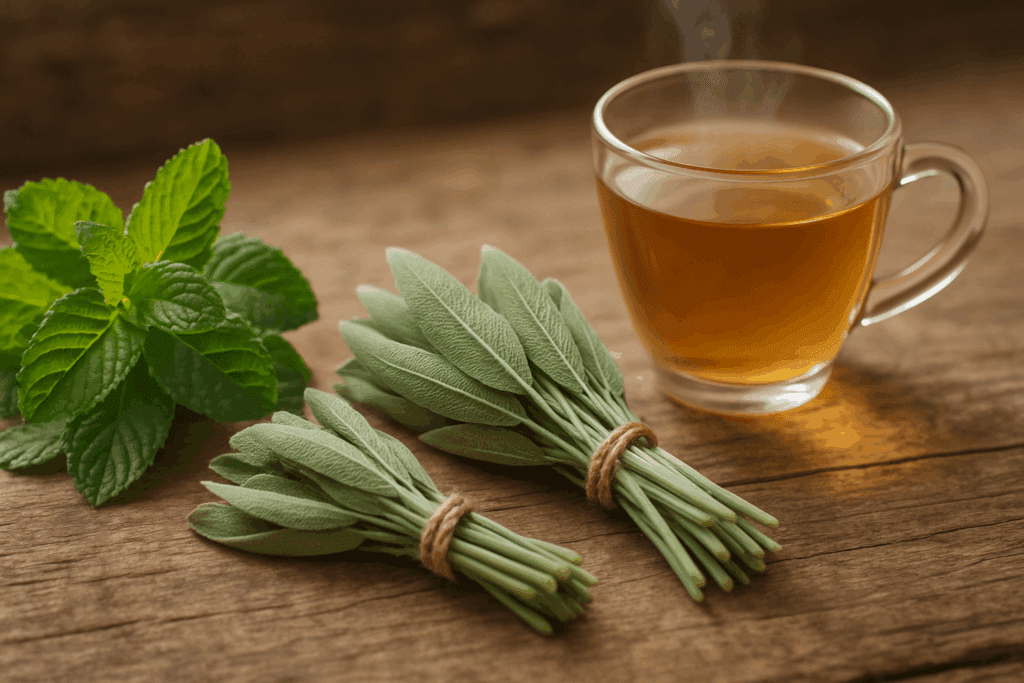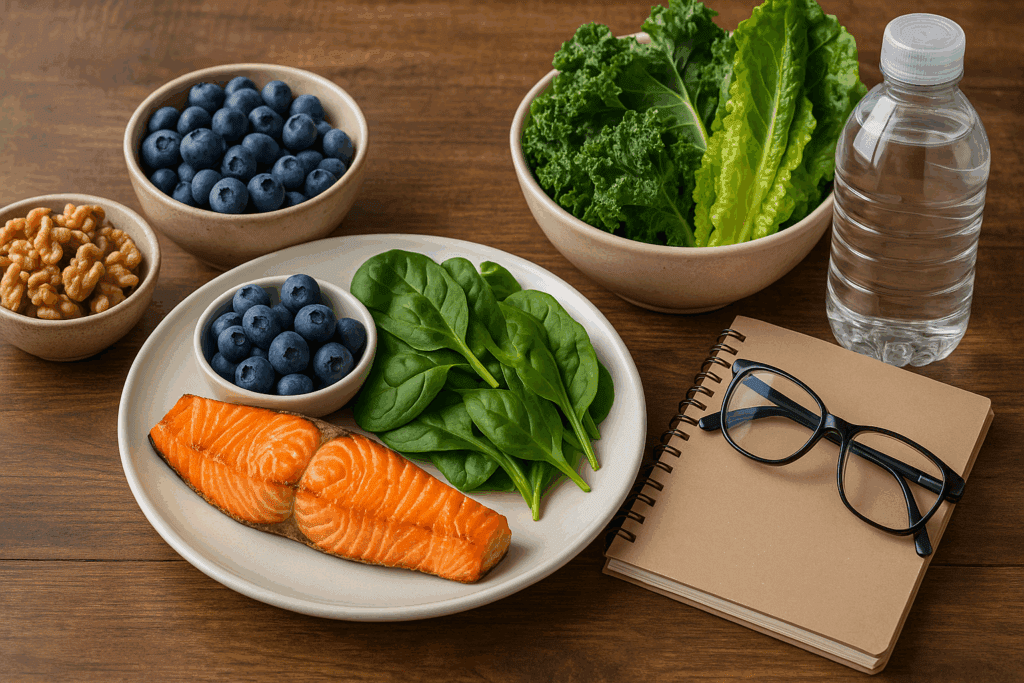For anyone who has ever walked into a room and forgotten why they were there or struggled to recall a name they just learned, the question of how to remember things you forgot can feel like a pressing puzzle. Memory lapses are not always cause for alarm—in fact, they are a common experience. But when these moments become frequent or frustrating, it’s worth exploring ways to support memory recall and improve cognitive clarity naturally. Fortunately, nature offers a rich pharmacopoeia of herbs that have been traditionally and scientifically associated with enhanced memory function. This article explores those natural supports while diving deep into the science of memory, cognitive health, and how we can gently sharpen our minds through herbal allies.
You may also like: Best Herb for ADHD Support: How Natural Remedies and Herbs for ADHD Women May Help Boost Focus and Calm
Understanding the Science of Memory and Forgetfulness
Before exploring natural herbs that may help, it’s vital to understand what memory is and why we forget. Memory is not a single process but a complex system involving encoding, storage, and retrieval of information. Each of these stages is supported by intricate networks in the brain, involving neurotransmitters like acetylcholine, dopamine, and glutamate. Forgetting can occur due to interference, stress, lack of sleep, nutritional deficiencies, or simply as part of the brain’s natural prioritization mechanism.
To improve how to remember things you forgot, one must first support overall brain health. This involves reducing inflammation, managing oxidative stress, and ensuring that neuroplasticity—the brain’s ability to rewire and form new connections—is optimized. Many natural herbs possess properties that align beautifully with these needs.

Ginkgo Biloba: The Time-Tested Memory Tree
One of the most well-researched herbs for cognitive clarity and memory is Ginkgo biloba. Often referred to as a living fossil, Ginkgo is believed to enhance cerebral blood flow, which may lead to improved oxygen and nutrient delivery to brain tissues. This alone is a key factor in how to remember something you forgot, as well-oxygenated neurons function more effectively.
Studies suggest that Ginkgo may support memory recall by modulating neurotransmitter activity and offering potent antioxidant protection. Flavonoids and terpenoids in the plant help to neutralize free radicals, which are known to damage brain cells and contribute to cognitive decline. While Ginkgo is no miracle cure, its consistent use over time has been associated with better performance on memory tasks, especially in individuals experiencing mild cognitive impairment.
Bacopa Monnieri: Ancient Ayurvedic Ally for Brain Health
Another powerful herb with a long history in traditional medicine is Bacopa monnieri, or Brahmi. Used for centuries in Ayurveda to enhance intellect and longevity, Bacopa has gained modern scientific interest for its nootropic properties. Research suggests that Bacopa may enhance memory by supporting synaptic communication and boosting levels of brain-derived neurotrophic factor (BDNF), a protein vital for long-term memory formation.
Bacopa’s saponins, particularly bacosides, are believed to exert a neuroprotective effect, reducing anxiety and improving attention span. These qualities are essential when figuring out how to remember something you have forgotten, as stress and distraction are among the top memory inhibitors. Consistent supplementation over several weeks may yield noticeable improvements in recall and mental clarity.

Lion’s Mane Mushroom: Fungal Power for Neural Regrowth
Among the most fascinating natural options for cognitive support is the Lion’s Mane mushroom (Hericium erinaceus). This unique fungus stimulates the production of nerve growth factor (NGF), a protein crucial for the growth and maintenance of neurons. NGF’s role in neurogenesis and repair offers a compelling reason to explore Lion’s Mane as a means to support how to remember stuff you forgot.
In both animal and human studies, Lion’s Mane has shown promise in improving cognitive performance, particularly in older adults. Its ability to support neuroplasticity may help reverse some of the structural decline associated with aging or chronic stress. Many users report enhanced clarity, focus, and recollection, making it an increasingly popular choice among biohackers and health-conscious individuals.
Rosemary: The Aromatic Memory Booster
Rosemary is more than a culinary herb; it has been linked to enhanced memory and mental performance for centuries. Even Shakespeare alluded to its benefits in Hamlet when Ophelia says, “There’s rosemary, that’s for remembrance.”
Modern research backs this poetic tradition. Compounds in rosemary, such as 1,8-cineole, have been shown to inhibit the breakdown of acetylcholine, a neurotransmitter associated with memory. Additionally, inhaling rosemary essential oil has been demonstrated to boost cognitive performance in tasks involving memory and alertness.
When considering how to remember things you just forgot, rosemary offers a fast-acting, sensory approach. Whether used in teas, oils, or culinary preparations, rosemary may help spark mental clarity and reduce cognitive fatigue.

Gotu Kola: The Rejuvenating Brain Tonic
Gotu kola (Centella asiatica) is another Ayurvedic and Traditional Chinese Medicine herb prized for its brain-enhancing qualities. Known as a rejuvenating herb, Gotu kola may improve circulation and strengthen blood vessels, especially in the brain.
One of Gotu kola’s most intriguing effects is its ability to promote dendritic growth and synaptic communication. This facilitates better information processing and recall—critical factors in understanding how to remember something you have forgotten. Preliminary studies have indicated that Gotu kola extracts may improve working memory and reduce mental fatigue, especially when taken consistently over time.
Its adaptogenic qualities also help reduce anxiety, which is a major contributor to forgetfulness. By calming the nervous system while enhancing cognitive function, Gotu kola stands out as a holistic ally for mental vitality.
Peppermint and Sage: Simple Yet Effective Herbal Tools
Though often overlooked, peppermint and sage have also demonstrated notable effects on cognitive performance. Peppermint, rich in menthol, may increase alertness and improve working memory. It is thought to stimulate the hippocampus, a brain region critical for forming and retrieving memories.
Sage (Salvia officinalis), meanwhile, has shown promise in supporting memory and attention span, possibly due to its cholinesterase-inhibiting properties. By slowing the breakdown of acetylcholine, sage may help enhance communication between neurons.
Together, these herbs offer accessible ways to support how to remember things you forgot. Whether through teas, capsules, or essential oils, integrating them into daily routines may yield meaningful benefits over time.
Adaptogens and Brain Health: Rhodiola and Ashwagandha
Memory is deeply affected by stress. Adaptogens—herbs that help the body resist physical and emotional stressors—can indirectly boost memory by calming the mind and reducing the cortisol overload that disrupts cognitive clarity.
Rhodiola rosea is one such herb, known for enhancing stamina and resilience. It may improve attention, reduce mental fatigue, and support better memory recall during high-stress periods. Ashwagandha (Withania somnifera), another potent adaptogen, supports the hypothalamic-pituitary-adrenal (HPA) axis, promoting hormonal balance and mental calm.
For those seeking how to remember stuff you forgot amidst a chaotic life, adaptogens may offer gentle but powerful support, allowing the brain to function more efficiently under pressure.

Nurturing Memory with Lifestyle and Nutrition
While herbs can play a significant role, they work best as part of a comprehensive lifestyle approach. Memory is intimately linked to sleep quality, physical activity, hydration, and nutrition. Omega-3 fatty acids, particularly DHA, are essential for brain cell membrane integrity. Antioxidant-rich fruits and vegetables combat oxidative stress, while whole grains and legumes supply steady glucose to fuel cognitive processes.
Mindfulness practices, such as meditation and focused breathing, also enhance memory by improving concentration and reducing mental clutter. Engaging in regular mental challenges—puzzles, language learning, creative writing—further stimulates neural circuits and reinforces long-term memory networks.
The Role of Repetition and Emotional Anchoring in Memory
Sometimes, remembering something you just forgot requires more than external support; it demands internal strategy. Repetition is a time-tested way to strengthen neural pathways, making information easier to retrieve. Emotional engagement with information—such as attaching a story, song, or visual cue—can also anchor memories more deeply.
These techniques complement the effects of herbs, offering a multi-layered approach to how to remember something you forgot. By combining internal habits with external supports, one can build a truly resilient memory.

Frequently Asked Questions: How to Remember Things You Forgot
1. Can emotions play a role in how to remember something you forgot?
Absolutely. Emotionally charged experiences tend to be encoded more deeply in memory, making them easier to recall. This happens because emotional arousal triggers the release of stress hormones like adrenaline and cortisol, which activate the amygdala and help reinforce memory traces. To improve how to remember something you forgot, try to tie the information to an emotional context or personal story—whether through humor, surprise, or sentimental value. Even mild emotional engagement can serve as a cognitive cue, helping you tap into memories that may otherwise remain inaccessible.
2. How does physical movement influence memory recall and clarity?
Movement has a profound influence on brain health and memory. Aerobic activities such as brisk walking, dancing, or cycling boost blood circulation to the brain and stimulate the release of neurotrophic factors that support neural plasticity. Research has shown that even short bouts of exercise can improve your ability to remember something you just forgot by enhancing synaptic transmission in the hippocampus. Incorporating physical movement while learning—such as pacing during phone calls or studying while walking—may help solidify memories more effectively. This adds a tactile and kinesthetic layer to learning, further supporting how to remember things you forgot.
3. Are there specific times of day when memory recall is strongest?
Yes, the time of day can significantly impact your ability to recall information. For most people, memory performance peaks in the morning and early afternoon when the brain is freshest and cortisol levels are optimal. However, individual chronotypes matter: night owls may perform better later in the day. Practicing how to remember stuff you forgot at your peak cognitive hours can lead to more successful retrieval. To optimize your memory recall, align critical learning or recalling activities with your most alert mental state.
4. What role does sleep play in remembering something you have forgotten?
Sleep is arguably one of the most crucial factors for memory consolidation. During deep sleep, particularly slow-wave and REM stages, the brain strengthens neural pathways and transfers information from short-term to long-term memory. If you’re wondering how to remember something you forgot, consider prioritizing quality sleep—especially after learning something new. Skimping on sleep disrupts these processes and increases forgetfulness. Establishing a consistent sleep routine enhances your brain’s ability to process and recall information effectively.
5. How can scent be used to improve memory recall naturally?
Scent has a unique ability to trigger vivid memories because it directly accesses the limbic system, the brain’s emotional and memory center. Using aromatherapy with essential oils like rosemary, peppermint, or lemon while studying can help reinforce associations with the material. Later, exposure to the same scent can cue your brain into remembering things you forgot. This technique is especially useful for students preparing for exams or professionals needing sharp recall in high-pressure situations. When paired with deep breathing, aromatic cues can enhance focus and relaxation—two ingredients essential to cognitive clarity.
6. What is the impact of digital distractions on the ability to remember?
Digital distractions—from social media notifications to multitasking apps—fracture attention spans and reduce the brain’s ability to encode information deeply. When you’re constantly switching tasks, your brain operates in a state of shallow processing, which makes it harder to remember something you have forgotten later. To strengthen how to remember things you forgot, engage in deep work sessions where you eliminate all unnecessary digital stimuli. Setting tech boundaries and incorporating mindfulness techniques like focused breathing can restore your attention span and improve information retention.
7. Are there cognitive techniques that help with remembering something you just forgot?
Yes, several memory-enhancing techniques go beyond herbal support. The “method of loci,” for example, involves mentally placing information in specific locations within a familiar space, making retrieval more intuitive. Chunking and visualization are other effective methods that group information into digestible parts and create mental images. These techniques are especially helpful when exploring how to remember stuff you forgot immediately after learning it. With practice, they become intuitive strategies that extend the brain’s natural capacity for recall.
8. Can memory improvement be tracked or measured at home?
While formal cognitive tests provide the most accurate assessments, simple at-home tracking can be surprisingly informative. Keeping a memory journal where you record forgotten items, recall successes, and daily mental activities allows you to identify trends and progress over time. Apps designed for brain training also offer cognitive performance metrics you can monitor. By tracking patterns—such as whether you forget names, appointments, or where you placed items—you can tailor strategies for how to remember something you have forgotten. Recognizing improvement reinforces positive behaviors and maintains motivation.
9. Do group activities or social engagement affect memory recall?
They do—meaningfully so. Social interaction stimulates various cognitive domains, including language, attention, and emotional recognition. Participating in group discussions, games, or collaborative learning not only makes remembering things more enjoyable but also strengthens neural networks. Talking through ideas with others often helps clarify concepts and embed them more deeply in memory. If you’re looking to reinforce how to remember something you forgot, consider joining a book club, debate group, or memory-based game night. Social reinforcement acts as both cognitive stimulation and emotional anchoring.
10. What emerging research areas show promise for future memory enhancement?
Cutting-edge research in neurogenesis, gut-brain axis modulation, and precision nootropic formulations offers hope for even more targeted memory interventions. Scientists are exploring how probiotics may influence neurotransmitter production and inflammation—factors that affect cognitive performance. Similarly, emerging nootropics are being developed to fine-tune specific pathways involved in memory recall. These innovations may reshape our understanding of how to remember something you just forgot by offering personalized solutions based on genetic, dietary, and environmental factors. As this field grows, staying informed about new findings will empower individuals to make evidence-based decisions for lifelong brain health.

Final Reflections: Embracing Herbal Wisdom for Better Recall and Mental Clarity
The journey toward remembering things you forgot doesn’t have to be riddled with frustration. By understanding how memory works and supporting it with natural, scientifically backed herbs, it’s possible to reclaim cognitive clarity and reduce the fog that often clouds our daily experiences.
Herbs like Ginkgo, Bacopa, Lion’s Mane, and Gotu kola don’t offer instant cures—but they provide meaningful support when integrated consistently and mindfully. When paired with healthy lifestyle practices and cognitive techniques, they can create a powerful synergy that not only helps you remember something you have forgotten but enhances your overall mental sharpness.
As we age or navigate stress-filled lives, our memory may need more attention and care. Thankfully, nature provides a rich toolkit for cognitive support. And with the right herbal allies and habits, learning how to remember stuff you forgot becomes a nourishing, empowering process—one rooted in both tradition and evidence-based science.
Further Reading:
How to Remember Something That You Forgot
How do you remember something you were just thinking about 2 seconds ago but then instantly forgot?
The brain can remember that it forgot something but never make a way to find out what you forgot


